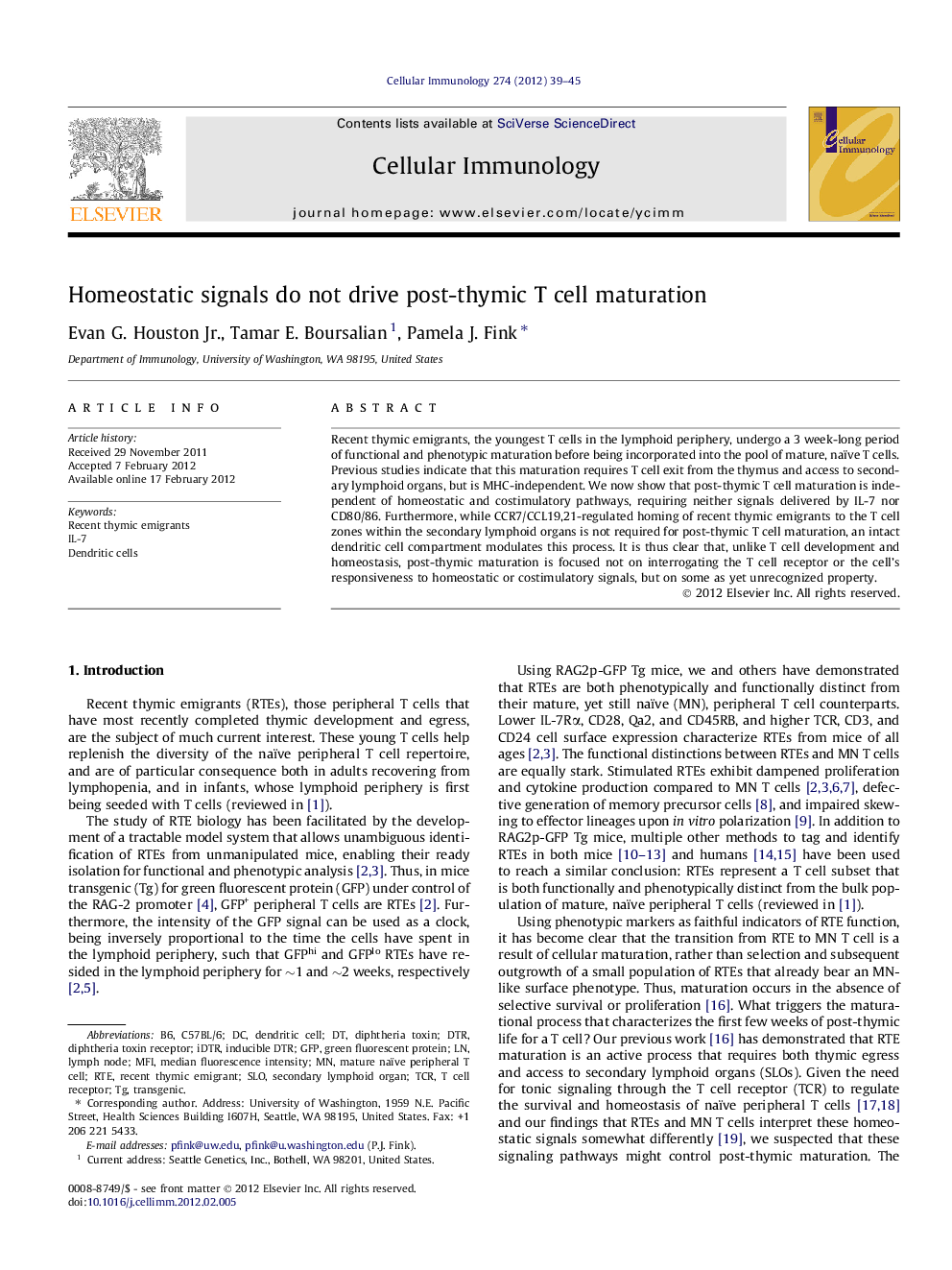| Article ID | Journal | Published Year | Pages | File Type |
|---|---|---|---|---|
| 2167252 | Cellular Immunology | 2012 | 7 Pages |
Recent thymic emigrants, the youngest T cells in the lymphoid periphery, undergo a 3 week-long period of functional and phenotypic maturation before being incorporated into the pool of mature, naïve T cells. Previous studies indicate that this maturation requires T cell exit from the thymus and access to secondary lymphoid organs, but is MHC-independent. We now show that post-thymic T cell maturation is independent of homeostatic and costimulatory pathways, requiring neither signals delivered by IL-7 nor CD80/86. Furthermore, while CCR7/CCL19,21-regulated homing of recent thymic emigrants to the T cell zones within the secondary lymphoid organs is not required for post-thymic T cell maturation, an intact dendritic cell compartment modulates this process. It is thus clear that, unlike T cell development and homeostasis, post-thymic maturation is focused not on interrogating the T cell receptor or the cell’s responsiveness to homeostatic or costimulatory signals, but on some as yet unrecognized property.
► The post-thymic maturation of recent thymic emigrants (RTEs) is IL-7 independent. ► RTE maturation does not depend on signals delivered by CD80/86. ► RTE microenvironmental homing within secondary lymphoid organs does not impact their maturation. ► An intact dendritic cell compartment is required for full phenotypic maturation of RTEs.
